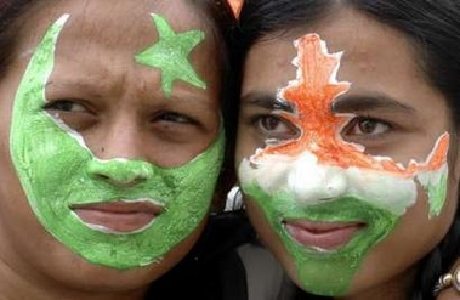Even as Indian treads the ‘dialogue-with-Pakistan’ path cautiously, Indian Foreign Secretary Nirupama Rao has reiterated the singular importance of dialogue between the two countries. Speaking on an Afghanistan-Pakistan-India Trialogue, she stressed the need to make boundaries “irrelevant” and find “creative solutions” to problems. Ironically, she failed to spell out these creative solutions even as she spoke of trust and vision deficit in India and Pakistan relations. The same old ‘people-to-people contact’ and ‘improved trade’ line was all she offered.
The problem lies not in an intellectual shortcoming on part of Ms Rao, but rather the complex and irrational nature of India-Pak relations. In spite of their potential to be natural allies with the shared history, culture, heritage, etc. they are today one of the worst enemies in the world. People-to-people contact and improved trade relations should not have been a goal, but rather routine for these neighbors. It would be juvenile to shift complete blame on to the British rulers who partitioned without thought. I think the burden of responsibility lies with the first generation rulers of these two countries. Even with their preoccupation with building a new nation, they cannot be excused for neglecting one of the most crucial aspects of a country’s existence, its neighbors. I believe that the India-Pakistan problem had the best chance of resolution while the Nehru and Jinnah generation was in power. They had all been colleagues, fighting for the same cause, side by side, against a common enemy. They had a lot more in common, a better rapport with each other, than any other set of leaders since. The problem was in its nascent stages, and borders were still being drawn. It would have been easier to reach an agreement and end the quest for Kashmir then. While today we have a problem of trust and vision deficit, back then vision was all that would have really mattered.
Of course, only blaming the first-generation rulers would be escaping responsibility. The India-Pakistan relations today are mired in suspicion, distrust, envy and competition. Both are constantly suspicious and look at every action from the anti-Pakistan/India prism. Pakistan is envious of India’s size and economic growth, while India envies the strategic importance and clout that Pakistan carries. They forget that the two countries are not equal and cannot expect to have the same fortunes. Pakistan needs to overcome its paranoia about India’s size, both economically and militarily; while India needs to get over its resentment over Pakistan’s geopolitical significance for Western nations.
It would help Indian leaders to think about the constant interference of foreign countries that they would have had to bear if India had been as strategically significant as Pakistan. Cold War politics and alignments were not about helping the smaller country, and dependence on any of the bigger powers would have only stymied India’s growth. Indian democratic institutions would not have had a chance to take roots and flourish without the relative peace that the country enjoyed over the last sixty years. It would not have been the proud rapidly growing nation that it is today, if outsiders had dictated what it should and should not do. I believe India is better off not wielding the geopolitical importance that Pakistan does. The economic clout it has today is more honorable and beneficial.
And because it has been so fortunate, it is India’s responsibility to find creative solutions to the Pakistan problem. Second-tier diplomacy worked when Musharraf was around, and there is nothing to stop it from working again. But for that to happen India would first have to identify the person/institution that it should engage. The current domestic political situation in Pakistan does not give a clear leader who can be trusted to have the authority to implement any agreements between the two countries. If a single leader is absent, India should try working from the bottom up, with grass-root organizations that could make a difference at a microscopic level. The trust deficit will take years to overcome. If a new generation of Pakistani leaders could be influenced through the back channels to want good relations with India, it would be a worthwhile investment of time.

The security situation might be difficult for business today, but the Indian government should encourage its businesses to find a way around it. If the two countries are able to establish a mutual economic dependence, it might create more incentives for peace. Official government level facilitation of trade would be difficult in face of the political considerations. But encouraging private entities to explore Pakistan might gradually create favorable conditions. Businesses always find ways to expand around government restrictions, and I would like to believe that entrepreneurs on both sides would find reason and ways to do so in this case too.
At the same time there should be a rational and objective debate in the media/society about the nature and future of India-Pakistan relations. Most debates today have animated ‘patriotic’ people crying for the other’s blood. What the two countries need is to groom a generation that can think objectively and thereby find solutions to the India-Pakistan problems. Instead of creating paranoia and hatred about the other, the media and educational institutions should take it upon themselves to facilitate a factual and rational debate. A theatrical display of your patriotic emotions is irrelevant when it cannot be translated into concrete actions for progress.
Mr Singh and Ms Rao might say a lot of things about finding creative solutions, but they will always be restricted by the political considerations its people force upon them. If nothing else, the Indian people and political parties should free its leaders of all petty political considerations when it comes to dealing with Pakistan. And then take them to task if they do not deliver.